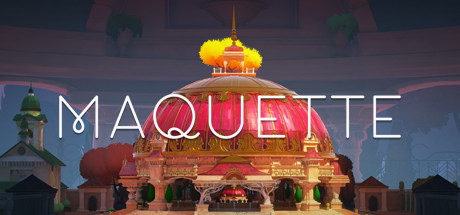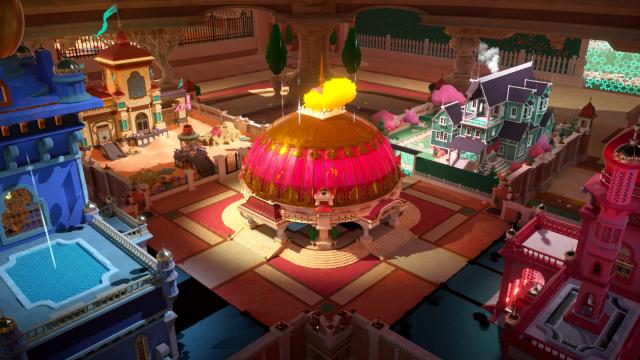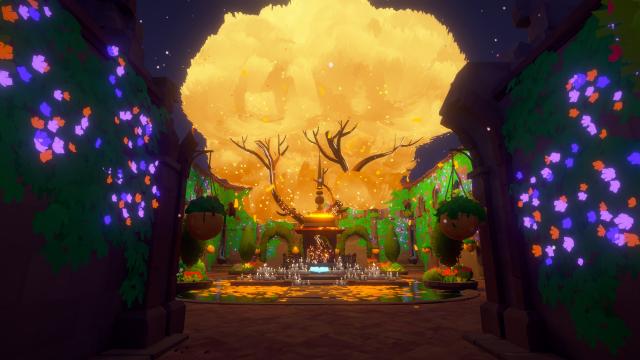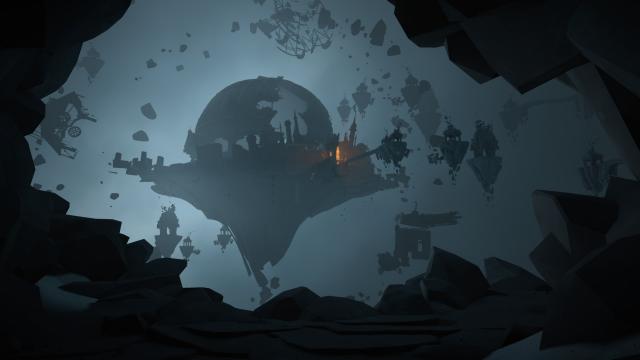Existing User Log In
New User Registration
Register for a free account to gain full access to the VGChartz Network and join our thriving community.





America - Front


America - Back

Graceful Decay
Puzzle
 (Add Date)
(Add Date) (Add Date)
(Add Date) (Add Date)
(Add Date)
| Owners: | 0 |
| Favorite: | 0 |
| Tracked: | 0 |
| Wishlist: | 0 |
| Now Playing: | 0 |
No one ever said long-term relationships were easy – well, no one serious at least. As the first thoughts of an invisible narrator are superimposed into this pastel-colored world, it’s easy to glean what resulted in this courtship off-screen. From trendy licensed indie tracks to the "will they/won’t they?" tension replaced by examining the inevitable downfall, Grateful Decay's debut emulates some prominent modern-day romances. Perhaps one could say this approach has become a more cynical trope in itself, an impulsive need to psycho-analyze heartbreak instead of capturing the elation of success. But, like Maquette's puzzle design, it all depends on your perspective.
The linear pathway through a wonderful garden eventually ends and segues into an animated 2D cutscene of the leads, Michael and Kenzie, meeting each other. The simple setup of a chance meeting at a coffee shop (after a funny accident) initially blossoms into a friendship over a common interest and then eventually into something more.
It’s a cute and disarming opening that also establishes Maquette's main structure: progress is reinforced by the next animation snippet of our disembodied leads. The few glimpses into Kenzie and Michael's lives together – via cutscenes or text scrawls – are reinforced by completing puzzles across six chapters. For the most part, these conundrums are centered on a recursive conceit. This world within a world within a world enables you to alter the scale of certain items in realtime: they can grow or shrink within the scale model housed at the center of this magical play space. A gilded, ruby-crested key can open locked doors within your perceived 'normal-sized' reality and then become an ornate bridge when dropped into your rotunda's diorama; conversely, a glowing item that's roughly 5-feet tall at its current scale will be the size of an apple within that same diorama.
From keys to blocks to gems, these objects will be used and re-used for each of the four plots encircling the pink-roofed maquette. Even your player-character, essentially treated like a human ghost (a la Dear Esther), will be occasionally utilized to beat some of these perspective puzzles. This makes for a decent assortment of brainteasers conceptually, but they're sometimes mechanically annoying. The delicate balance between too much or too little info can be a precarious balance, and Grateful Decay occasionally stumbled towards the latter. I'll admit to resorting to outside help for some challenges, and I'll bet other critics received a PR guide to move ahead as well. It's less to do with insanely complex logic and more with lacking visual feedback. Items you need to manipulate will sometimes get stuck in awkward ways, implying that's the wrong idea, and platforming can act inconsistently with the level design. You don't necessarily need yellow-painted edges to guide players, but there could be stronger visual and mechanical reinforcement.
It's a shame those design annoyances can interrupt attention, especially since the aesthetic and atmosphere is among Maquette's strongest qualities. A term like "atmosphere" typically associates with the gloomy and dark – for good reason, but that doesn't accurately capture this vibe. I could spend countless words expatiating about its recursive puzzle design, but it'd fall short of experiencing what's essentially a Russian nesting doll: looking up and seeing you're in a diorama that's in another diorama and so on and so on. Despite the grandiose significance, the aesthetic feels like a fantastical World’s Fair, with a brighter & quirkier style more fitting of a Wes Anderson film; hell, those recent AI-driven faux Wes Anderson trailers look quite similar.

While that AI comparison isn't meant to suggest artificiality to the art design, it's applicable for this banal romance. I can only assume voice actors Seth Gabel and Bryce Dallas Howard’s real-life marriage has more spark and inventiveness than their characters here. Who'd enjoy milquetoast slop for decades? Sure, Michael and Kenzie are relatable in the sense that anyone can sympathize with the early awkwardness and whatnot, but it would've been better without the dull-as-dishwater dialogue. Moments where they vociferate over the other not listening nor caring, use fun little nicknames, and so on feel too clichéd to connect with; and since these cutscenes are quite limited, all the script can do is the broad strokes of a doomed romance: the initial fun, some nagging talks past each other, and things petering out. Even the otherwise sincere message at the conclusion doesn't feel earned as a result.
It's not helped by gameplay that only feels tangentially connected as well. The a-ha! revelation as to why can be found in Creative Director Hanford Lemoore’s own words: the story was originally about a protagonist trapped in a dungeon by a wizard. Which makes perfect sense towards the end too. Of course, the premise's transition still finds some successful ties. The gradual crumbling of this magical world can serve as an augury of their relationship; or the main concept of reshaping objects also thematically connects with how certain events (no matter how small) can catenate into something bigger, perhaps recontextualizing the breakup altogether. Even when considering potential layers, it's a jumble of clean and tenuous connections, especially with specific puzzle items, that feel too messily mashed together.
These demands for interpretation ultimately feel unsatisfying with gaps so wide. Although games often stumble into tonal mismatches between story and gameplay, greater scrutiny is earned here when Grateful Decay tries setting that fusion on a pedestal. It's missing the abstract ideas and heightened concentration of Manifold Garden's dimensional shifts or The Witness' allure in mentally sequencing the entire island through line puzzles. Your gaze will more likely go to the world instead of the challenges, which isn't a bad substitute either. Sure, most of the licensed tracks reek of West Coast skunk weed, but the walking-sim segments also provide a grander sense of place.

Even when it becomes tougher to hone in on Maquette's accumulated strengths, it’s easy to admire Grateful Decay going for broke on this mind-blowing concept. Technical inconsistencies when physically executing a plan you've mentally mapped out can get distracting, but the logic behind its recursive world feels genuinely inspired. Said ideas often feel clumsily soldered onto Michael and Kenzie's relational journey, with a script that’s almost AI-generated, but it still lands a few emotional blows. The 4-hour runtime can imply everything ended a bit too soon; then again, perhaps that quicker burn thematically marries with what – at one time – could've been an earnest Hallmark romance. It all depends on one's point of view, I suppose.
Contractor by trade and writer by hobby, Lee's obnoxious criticisms have found a way to be featured across several gaming sites: N4G, VGChartz, Gaming Nexus, DarkStation, and TechRaptor! He started gaming in the mid-90s and has had the privilege in playing many games across a plethora of platforms. Reader warning: each click given to his articles only helps to inflate his Texas-sized ego. Proceed with caution.









